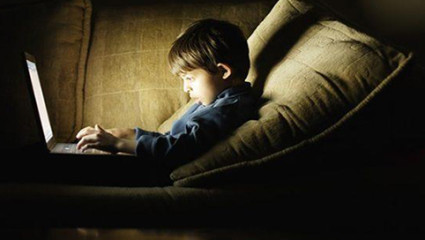 As technologies become increasingly tied to our day-to-day lives and new means of communicate are redefined, the gap between generations grows. The children of today, the “digital natives” have not had to adapt to it: it was the digital world who welcomed them.
As technologies become increasingly tied to our day-to-day lives and new means of communicate are redefined, the gap between generations grows. The children of today, the “digital natives” have not had to adapt to it: it was the digital world who welcomed them.
More than 95% of those under the age of 13 use the computer on a daily basis. In particular, according to the Center for Internet Security for Children in Spain (Protégeles), 78% of children aged between 11 and 14 use instant messaging systems as Whatsapp or Telegram. 72% of them regularly access social networks like Instagram or Facebook, and 23% are continuously publishing photos and videos.
Even so, the report by Protégeles, “Minors and Mobile Connectivity in Spain: Tablets and Smartphones“, makes it clear that children must begin accessing technologies “as early as possible, as long as they are accompanied by their parents, who should be closely involved in training them“.
As adults need to adapt to the internet and learn later on in life at a slower pace, they are more aware of its advantages and its dangers. However, data shows that households are lagging behind when it comes to educating children on how to use the internet properly. Only half of parents, 54 %, talk to their children about the potential negative consequences of visiting unsuitable sites on the internet.
A striking fact is that 62% of them check the pages visited by their children. Based on this, we can deduce that parents worry about it more than actually taking action; that is to say, they are more worried about knowing what content their children have accessed after it has happened, but they do not go to the same trouble to convey what content is positive for their learning and why.
Board up the windows?
Other parents opt for restriction, a poor choice in the opinion of the experts, who agree that it is not a question of banning, but educating. “We can board up the windows of our house, but if we do not teach our son what a window is and why they should not jump out of it, the more likely they are to do it at a friend’s house,” explained the Internet User Security Office. Discipline and censorship might ease parents’ minds, but they do not actually address the root of the problem.
In this regard, the fact that adults are moving in an unknown environment and will never acquire the same skills does not mean that the risks faced by their children are different from those they had to face themselves.
 Life experience will always be the greatest asset. But the various technological carriers have also accepted their responsibility in meeting the new challenges. Innovative projects have been created aimed at both parents and children that are intended to facilitate learning and prevention. Web portals such as www.pantallasamigas.net or www.segu-kids.org or opt for education to train responsible digital citizens.
Life experience will always be the greatest asset. But the various technological carriers have also accepted their responsibility in meeting the new challenges. Innovative projects have been created aimed at both parents and children that are intended to facilitate learning and prevention. Web portals such as www.pantallasamigas.net or www.segu-kids.org or opt for education to train responsible digital citizens.
Another example is ‘Family Safety’, an initiative driven by Kaspersky Lab, the Alia2 Foundation and Re-Teatro that offered cybersecurity advice and social network dictionaries to all members of the family.
The new application ‘Movistar Protects’ also responds to many of the questions parents and guardians often ask. The website www.protege.movistar.es allows parents to configure electronic devices in the home (up to 10 depending on the subscription purchased) and receive a report on the activity carried out on the internet and social networks for each user. It offers the possibility to establish schedules and receive alerts, as well as activating a “panic button“ so that the minor can contact their guardians in case of possible danger.
“We don’t want to spy on our children,“ says Elena Valderrábano, Head of Sustainability at Telefónica. All educators and experts agree that problems such as cyberbullying or harassment online are easier to prevent when there is good communication between parents and children. “We need to promote internet use as a way of getting more information about their tastes and interests, but always with a critical mind,” added Valderrábano.
The reality is that 90% of children who suffer some sort of incident on the internet do not talk about their problems with their family. To overcome this obstacle, she warns that making parents afraid of the internet is not the answer: “The internet is a wonderful tool that has changed our lives and the way we work, study and communicate with each other“.
In this changing context, alliances between government, businesses and the third sector are essential to protect minors from the internet, one of the major challenges facing modern society.


 Ethic. La vanguardia de la sostenibilidad.
Ethic. La vanguardia de la sostenibilidad. 








